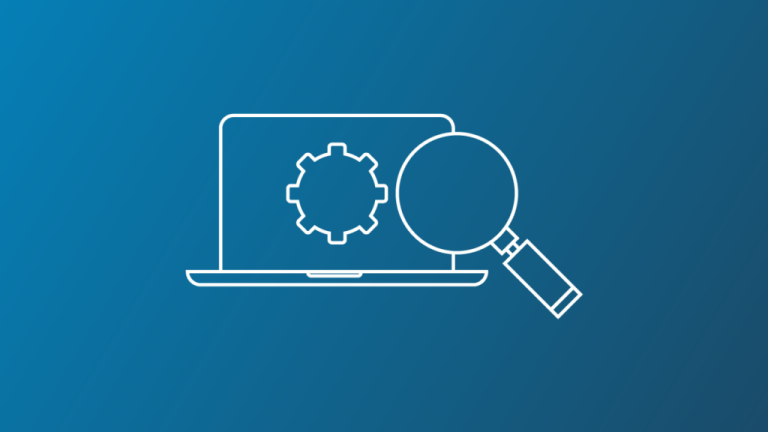The Future of Health: US Health Advisors Leading the Way

Key Takeaways:
- Artificial intelligence (AI) is transforming diagnostics and treatment in healthcare.
- Virtual reality (VR) applications enhance patient experience and provide therapeutic interventions.
- Blockchain solutions safeguard patient data and streamline healthcare processes.
- Telemedicine brings accessible healthcare to remote areas and allows for remote patient monitoring.
- Telehealth apps and wearable devices enable individuals to monitor their own health and access virtual consultations.
- Teleconsultations break down barriers to specialist medical care.
- US Health Advisors provide personalized healthcare consulting.
- Partnerships between tech giants and healthcare providers are driving innovation in the healthcare industry.
- Health-tech startups are disrupting the traditional healthcare industry.
- Integrative medicine combines conventional and complementary therapies.
- Mindfulness practices promote mental well-being.
- Exercise and nutrition play a vital role in optimal health.
Revolutionary Technologies Shaping the Healthcare Landscape
In recent years, technology has revolutionized the healthcare industry, transforming the way we diagnose, treat, and manage illnesses. Artificial intelligence (AI), virtual reality (VR), and blockchain solutions have emerged as powerful tools that are reshaping the healthcare landscape.
- Artificial Intelligence in Healthcare: Transforming Diagnostics and Treatment
Artificial intelligence is making significant strides in healthcare, enabling more accurate diagnostics and personalized treatment plans. AI algorithms are trained to analyze vast amounts of medical data, helping healthcare providers make informed decisions quickly and accurately.
Machine learning algorithms can compare patient data with vast databases of medical records, identifying patterns, and predicting outcomes. This allows for early detection of diseases, more precise diagnosis, and tailored treatment plans. In addition, AI-powered robotic systems are assisting in complex surgeries, improving the precision and outcomes of surgical procedures.
- Virtual Reality Applications: Enhancing Patient Experience and Therapeutic Interventions
Virtual reality has not only found a place in the gaming and entertainment industry but also holds great potential in healthcare. VR applications are being used to enhance patient experience, reduce anxiety, and provide therapeutic interventions.
For example, VR can transport patients to calming environments, helping distract them from the pain and anxiety associated with medical procedures. It can also simulate real-life scenarios for training healthcare professionals, allowing them to practice complex procedures in a virtual setting.
- Blockchain Solutions: Safeguarding Patient Data and Streamlining Healthcare Processes
Blockchain technology is gaining traction in the healthcare industry for its ability to secure patient data and streamline healthcare processes. With blockchain, patient records can be securely stored and accessed by authorized parties only, ensuring data privacy and reducing the risk of data breaches.
Moreover, blockchain can facilitate secure and transparent healthcare transactions, such as insurance claims and supply chain management. It can streamline processes, reduce administrative costs, and improve the overall efficiency of healthcare systems.
The Rise of Telemedicine: Accessible Healthcare for All
Telemedicine, also known as telehealth, has emerged as a game-changer in healthcare, making healthcare services accessible to individuals regardless of their geographical location. Telemedicine advancements, telehealth apps and wearable devices, and teleconsultations have transformed the way healthcare is delivered.
- Telemedicine Advancements: Bringing Healthcare to Remote Areas
Telemedicine has made significant advancements in bringing healthcare services to remote and underserved areas. Through video consultations and remote monitoring, patients in rural areas can access medical specialists without the need for travel. This has not only improved access to healthcare but also reduced healthcare disparities.
Remote patient monitoring using wearable devices allows healthcare providers to continuously monitor vital signs and disease progression. This enables early intervention and personalized care, improving patient outcomes.
- Telehealth Apps and Wearable Devices: Monitoring Health at Your Fingertips
Telehealth apps and wearable devices have revolutionized how individuals monitor their own health. These technologies allow users to track their vital signs, exercise routines, sleep patterns, and overall wellness. Data collected from these devices can be easily shared with healthcare providers, enabling proactive healthcare management.
Telehealth apps also provide access to virtual consultations, where patients can discuss their symptoms and concerns with healthcare professionals from the comfort of their own homes. This convenience and accessibility have transformed the way healthcare is delivered, especially for individuals with mobility issues or those living in remote areas.
- Teleconsultations: Breaking Barriers to Specialist Medical Care
Teleconsultations have broken down barriers to specialist medical care. With virtual consultations, patients can connect with specialists across the country or even internationally, eliminating the need for travel and long waiting times.
This has been particularly beneficial for individuals with rare diseases or complex medical conditions that require specialized expertise. Patients can now receive timely and expert advice without the logistical challenges associated with in-person consultations.
Innovative Healthcare Business Models and Collaborations
The healthcare industry is witnessing innovative business models and collaborations that are driving the future of healthcare. US Health Advisors, partnerships between tech giants and healthcare providers, and the rise of health-tech startups are paving the way for transformative changes.
- US Health Advisors: A Game-Changer in Personalized Healthcare Consulting
US Health Advisors have emerged as a game-changer in personalized healthcare consulting. These advisors work closely with individuals to understand their unique healthcare needs and provide tailored solutions. They assist in navigating insurance options, finding the right healthcare providers, and optimizing healthcare plans.
By providing personalized guidance and expertise, US Health Advisors empower individuals to make informed decisions about their healthcare. They ensure that individuals have access to the right resources and services that align with their specific requirements.
- Partnerships between Tech Giants and Healthcare Providers: Driving Innovation Forward
The partnership between tech giants and healthcare providers is driving innovation forward in the healthcare industry. Companies like Google, Apple, and Amazon are collaborating with healthcare organizations to develop technologies and solutions that improve patient care and streamline healthcare processes.
These partnerships have led to the development of innovative healthcare solutions, such as electronic health records systems, remote patient monitoring devices, and personalized health apps. By leveraging the expertise and resources of both technology and healthcare sectors, these collaborations are shaping the future of healthcare.
- The Rise of Health-tech Startups: Disrupting the Traditional Healthcare Industry
The rise of health-tech startups is disrupting the traditional healthcare industry. These startups are leveraging technology to address inefficiencies and gaps in healthcare delivery. From telemedicine platforms to AI-powered diagnostics, health-tech startups are offering innovative solutions that are transforming the way healthcare is accessed and delivered.
These startups are not only improving patient outcomes but also driving down healthcare costs and increasing accessibility. They are challenging traditional healthcare models and fostering a culture of innovation and entrepreneurship in the industry.
Mind-Body Approaches to Holistic Wellness
In addition to technological advancements, mind-body approaches to holistic wellness are gaining recognition in the healthcare industry. Integrative medicine, mindfulness practices, and the integration of exercise and nutrition are contributing to optimal health and well-being.
- Integrative Medicine: Uniting Conventional and Complementary Therapies
Integrative medicine combines conventional medical approaches with complementary therapies, such as acupuncture, herbal medicine, and yoga. This approach recognizes the importance of treating the whole person, including their physical, mental, and emotional well-being.
Integrative medicine aims to address the root causes of illness and promote self-care and prevention. It emphasizes the partnership between the patient and healthcare provider, empowering individuals to take an active role in their own health.
- The Power of Mindfulness: Cultivating Mental Well-being for Better Health
Mindfulness practices, such as meditation and mindfulness-based stress reduction, are gaining recognition for their positive impact on mental well-being and overall health. Research has shown that mindfulness can reduce stress, improve attention and focus, and enhance overall emotional well-being.
By incorporating mindfulness practices into healthcare, individuals can cultivate mental resilience, manage chronic pain, and improve their overall quality of life. Mindfulness-based interventions are being integrated into various healthcare settings, including hospitals, clinics, and mental health centers.
- Integrating Exercise and Nutrition: Building Strong Foundations for Optimal Health
Exercise and nutrition play a vital role in maintaining optimal health and preventing chronic diseases. Integrating exercise and nutrition into healthcare practices is essential for promoting overall well-being.
Healthcare providers are increasingly focusing on preventive care and lifestyle interventions to help individuals make sustainable changes in their exercise and dietary habits. By emphasizing the importance of physical activity and a healthy diet, healthcare professionals are empowering individuals to take control of their health and prevent future health complications.
In conclusion, the future of health is being shaped by revolutionary technologies, the rise of telemedicine, innovative business models, and a focus on holistic wellness. Artificial intelligence, virtual reality, and blockchain solutions are transforming the healthcare landscape, making diagnostics more accurate and treatment more personalized. Telemedicine is bringing accessible healthcare to all, breaking down barriers to specialist care, and empowering individuals to monitor their health. Innovative healthcare business models and collaborations, such as US Health Advisors and partnerships between tech giants and healthcare providers, are driving innovation forward. Mind-body approaches to holistic wellness, including integrative medicine, mindfulness practices, and the integration of exercise and nutrition, are contributing to optimal health and well-being.
FAQ
Question: How is artificial intelligence transforming healthcare?
Answer: Artificial intelligence is revolutionizing healthcare by enabling more accurate diagnostics and personalized treatment plans. AI algorithms analyze vast amounts of medical data, helping healthcare providers make informed decisions quickly and accurately.
Question: What are virtual reality applications in healthcare?
Answer: Virtual reality applications are being used to enhance patient experience, reduce anxiety, and provide therapeutic interventions. VR can transport patients to calming environments and simulate real-life scenarios for training healthcare professionals.
Question: How does blockchain safeguard patient data?
Answer: Blockchain technology securely stores and allows access to patient records by authorized parties only, ensuring data privacy and reducing the risk of breaches. It also facilitates secure and transparent healthcare transactions, improving the overall efficiency of healthcare systems.
Question: How does telemedicine bring healthcare to remote areas?
Answer: Telemedicine allows patients in remote areas to access healthcare services through video consultations and remote monitoring. It has greatly improved access to healthcare and reduced healthcare disparities.
Question: What are telehealth apps and wearable devices?
Answer: Telehealth apps and wearable devices enable individuals to monitor their health by tracking vital signs, exercise routines, sleep patterns, and overall wellness. These technologies also provide access to virtual consultations with healthcare professionals.
Question: How do teleconsultations break down barriers to specialist medical care?
Answer: Teleconsultations enable patients to connect with specialists across the country or internationally, eliminating the need for travel and long waiting times. This benefits individuals with rare diseases or complex medical conditions that require specialized expertise.
Question: How do US Health Advisors provide personalized healthcare consulting?
Answer: US Health Advisors work closely with individuals to understand their unique healthcare needs and provide tailored solutions. They assist in navigating insurance options, finding the right healthcare providers, and optimizing healthcare plans.
Question: How are tech giants collaborating with healthcare providers?
Answer: Tech giants like Google, Apple, and Amazon are collaborating with healthcare organizations to develop technologies and solutions that improve patient care and streamline healthcare processes. These partnerships are driving innovation in the healthcare industry.






